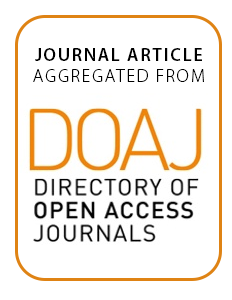Location
Since 1999 AOSIS (Pty) Ltd has been empowering Africa’s people through knowledge.
We’ve done this by:
- unlocking Africa’s rich knowledge resources to the world; and
- enabling effective knowledge access through the most appropriate technology.
In practice this involves publishing the latest African scholarly research, while ensuring free access to all through open-access publishing. AOSIS also offers online continuing professional development courses across industries for those who need to keep pace with current research and trends. Finally, we design, develop and implement eLearning services for schools, universities, and corporates.
We are grounded by four core values in every undertaking: fairness, passion, integrity and servant leadership to our clients, employees and larger community.
Together as a community we can empower Africa’s people through knowledge. Join us.
Members:
Resources
Displaying 1 - 5 of 11Clearing invasive alien plants as a cost-effective strategy for water catchment management: The case of the Olifants river catchment, South Africa
Invasive alien plants have a negative impact on ecosystem goods and services derived from ecosystems. Consequently, the aggressive spread of invasive alien plants (IAPs) in the river catchments of South Africa is a major threat to, inter alia, water security. The Olifants River catchment is one such a catchment that is under pressure because of the high demand for water from mainly industrial sources and unsustainable land-use, which includes IAPs. This study considered the cost-effectiveness of clearing IAPs and compared these with the cost of a recently constructed dam.
Evaluating the cost-effectiveness of ecosystem-based adaptation: Kamiesberg wetlands case study
Ecosystem-based adaptation (EbA) is increasingly being promoted as a cost-effective means of adaptation to climate change. However, in spite of considerable international press, there is still little evidence to substantiate this claim. This study proposes a method through which the cost-effectiveness of EbA strategies can be evaluated against alternative adaptation options, and contributes to South African literature on the subject.
Land value as a function of distance from the CBD: The case of the eastern suburbs of Pretoria
The greater the benefit derived from using a piece of land for any particular purpose the higher the price the prospective user is willing to pay. The demand for land is thus a reflection of the utility derived from its use by current or potential users. The ability to compete for sites depends on whether they have the means to benefit from accessibility and complementarity within the urban framework. Conventional theory states that productivity determines urban rent, which is the highest at the place of maximum accessibility, i.e. the central business district (CBD).
Conditions for successful land reform in Africa
Land reform has traditionally had two objectives: equity and productivity. Food insecurity and the need for agriculture to contribute to development emphasise the need to maintain and improve productivity while improving equitability. Land must foster production and agriculture must attract good human material.
Poverty and soil conservation efforts among smallholder farmers in the central highlands of Ethiopia
This study explores the influence of incidence of poverty and plot-level perception of soil degradation, on soil conservation behaviour of small subsistence farmers in the central highlands of Ethiopia. The study results confirm that poverty in assets significantly reduces the probability of soil-conservation efforts as measured by use of stone/soil bund structures in the highlands of Ethiopia.


